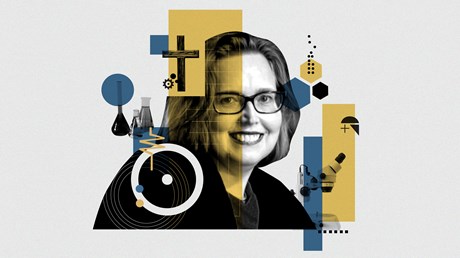Elaine Howard Ecklund examines curiosity, shalom and other virtues that scientists and Christians share.

In the midst of a global pandemic, some Christian approaches to science have received attention for their mistrust of COVID-19 vaccines or opposition to mask wearing. The struggle isn’t new. Over the years, national surveys have tracked a more pronounced mistrust of science among Christians on human-caused global warming, evolution, and other issues, often leading to public attention on conflict areas. Yet many Christians have not only found a harmony of faith and science but also followed a calling that lives in that tension.
Seeking to address the need for more cooperation and collaboration between scientific and faith communities, Rice University sociologist Elaine Howard Ecklund wants to highlight the commonalities, instead of the conflicts, as a way forward.
Ecklund has spent more than a decade reporting on what scientists believe about religion and what religious people—especially Christians—believe about science. Despite the fact that nearly 50 percent of scientists consider themselves religious, much distrust remains between Christians and scientists, with each side often viewing the other as a threat.
In her most recent book, Why Science and Faith Need Each Other: Eight Shared Values That Move Us Beyond Fear, Ecklund proposes that Christians and scientists can find common ground around eight virtues that play a vital role in both faith and the practice of science: curiosity, doubt, humility, creativity, healing, awe, shalom, and gratitude.
Christopher Reese spoke with Ecklund about the book and some of the challenging issues surrounding the relationship between Christianity and science.
Why is it important for Christianity and science to find common ground?
Research shows that the views people hold about ...
from Christianity Today Magazine
via


.gif)

.gif)
.gif)
